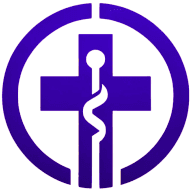The healthcare industry is a dynamic and rapidly evolving sector. With the advent of new technologies and the constant push for better patient care, it is essential to stay updated with the latest trends. This blog post will delve into the most recent developments in the healthcare industry, providing a comprehensive overview of the changes and advancements that are shaping the future of healthcare.
The Rise of Telemedicine
Telemedicine has emerged as a significant trend in the healthcare industry. The need for remote healthcare services has been amplified by the global pandemic, with more patients seeking medical advice from the comfort of their homes. Telemedicine offers a convenient and cost-effective solution, reducing the need for physical visits to healthcare facilities.
Moreover, telemedicine is not just about convenience. It also plays a pivotal role in improving access to healthcare services, particularly for individuals living in remote or underserved areas. With telemedicine, patients can receive medical attention without the need for long-distance travel.
The adoption of telemedicine is also driving changes in healthcare infrastructure. Healthcare providers are investing in advanced technologies to facilitate remote consultations, including high-definition video conferencing tools, secure messaging apps, and electronic health record systems. The integration of these technologies is enhancing the efficiency and effectiveness of telemedicine services.
The Impact of Artificial Intelligence
Artificial Intelligence (AI) is another trend that is revolutionizing the healthcare industry. AI algorithms can analyze vast amounts of data, enabling healthcare providers to make more informed decisions.
AI is being used in various aspects of healthcare, from diagnosis to treatment planning. For instance, AI-powered imaging tools can detect abnormalities in medical images with remarkable accuracy, aiding in early diagnosis of diseases. Similarly, AI algorithms can predict patient outcomes based on historical data, assisting doctors in devising personalized treatment plans.
However, the use of AI in healthcare is not without challenges. Issues related to data privacy and security, algorithmic bias, and the lack of clear regulatory guidelines are some of the concerns that need to be addressed as the use of AI in healthcare continues to grow.
The Emergence of Personalized Medicine
Personalized medicine is another trend that is gaining momentum in the healthcare industry. This approach involves tailoring medical treatments to individual patients based on their genetic makeup, lifestyle, and other personal factors.
Personalized medicine has the potential to improve patient outcomes significantly. By understanding the unique characteristics of each patient, healthcare providers can devise treatment plans that are more likely to be effective and less likely to cause adverse side effects.
The rise of personalized medicine is also driving advancements in genomics and other fields of biomedical research. As our understanding of the human genome continues to grow, we can expect to see more personalized treatments in the future.
The Growth of Wearable Technology
Wearable technology is another trend that is reshaping the healthcare industry. From fitness trackers to smartwatches, wearable devices are becoming increasingly popular among health-conscious consumers.
These devices can monitor various health parameters, including heart rate, blood pressure, sleep patterns, and physical activity levels. The data collected by these devices can provide valuable insights into a person's health, helping them make informed decisions about their lifestyle and healthcare.
Moreover, wearable technology is not just for consumers. Healthcare providers are also using wearable devices to monitor patients remotely, particularly those with chronic conditions. This allows for timely intervention, potentially preventing serious health complications.
The Advancement of Virtual Reality
Virtual reality (VR) is another technology that is making its mark on the healthcare industry. VR can create immersive, three-dimensional environments, providing a new way for healthcare providers to interact with patients and medical data.
For instance, VR can be used for patient education, allowing patients to visualize their medical conditions and understand their treatment options better. VR is also being used for surgical training, providing a safe and realistic environment for surgeons to practice their skills.
While the use of VR in healthcare is still in its early stages, the potential applications are vast. As VR technology continues to evolve, we can expect to see more innovative uses in the healthcare industry.
The Shift towards Value-Based Care
The healthcare industry is also witnessing a shift towards value-based care. This approach focuses on improving patient outcomes rather than the volume of services provided.
Value-based care encourages healthcare providers to focus on quality over quantity. This means prioritizing preventive care, managing chronic conditions effectively, and reducing unnecessary hospitalizations.
The shift towards value-based care is also driving changes in healthcare payment models. Instead of fee-for-service models, healthcare providers are being rewarded based on the quality of care they provide. This is encouraging healthcare providers to adopt best practices and invest in technologies that improve patient outcomes.
Summarizing the Latest Trends in Healthcare
The healthcare industry is undergoing significant changes, driven by advancements in technology and a shift towards patient-centered care. Telemedicine, AI, personalized medicine, wearable technology, VR, and value-based care are some of the trends that are shaping the future of healthcare. By staying updated with these trends, healthcare providers can better meet the evolving needs of patients and improve the overall quality of care.

